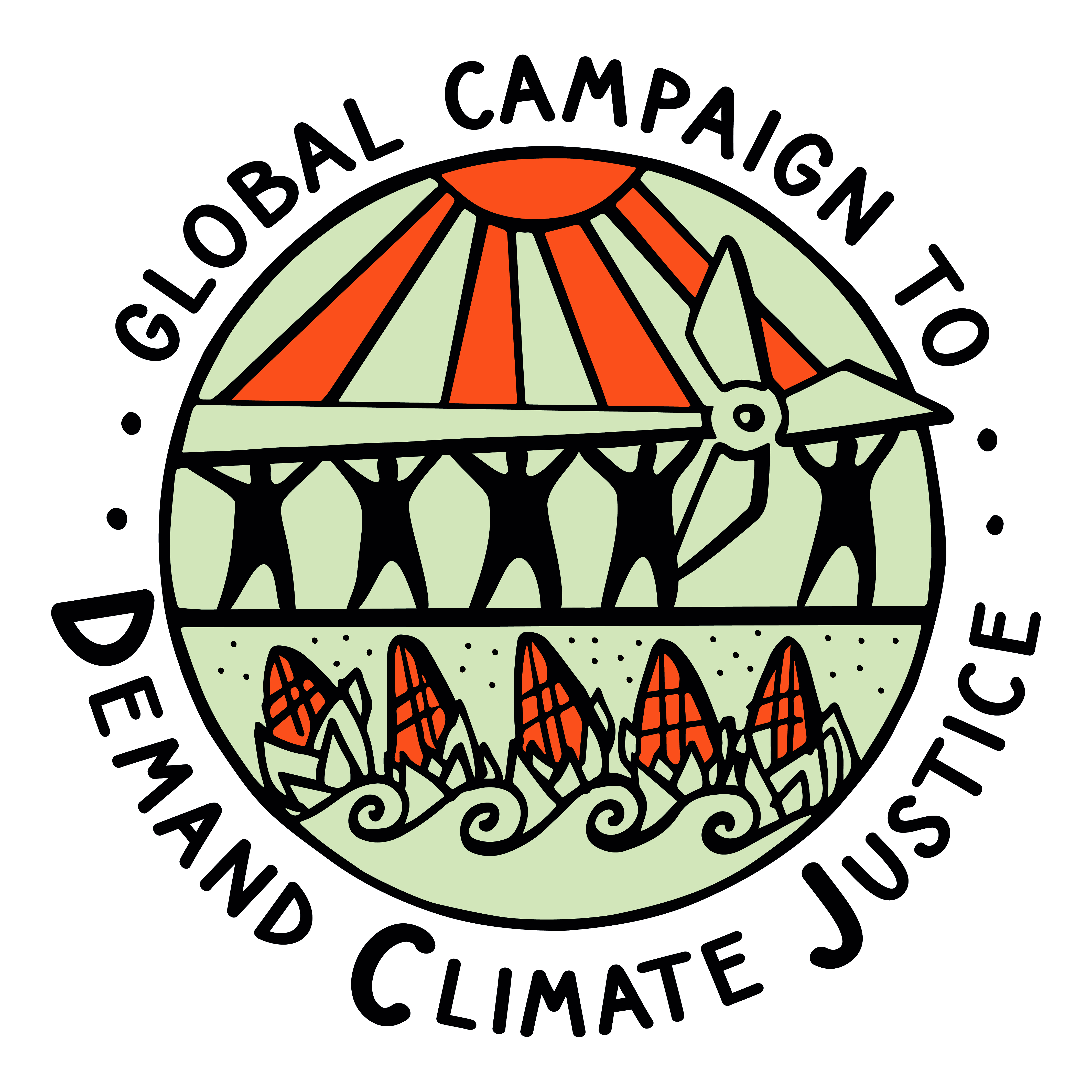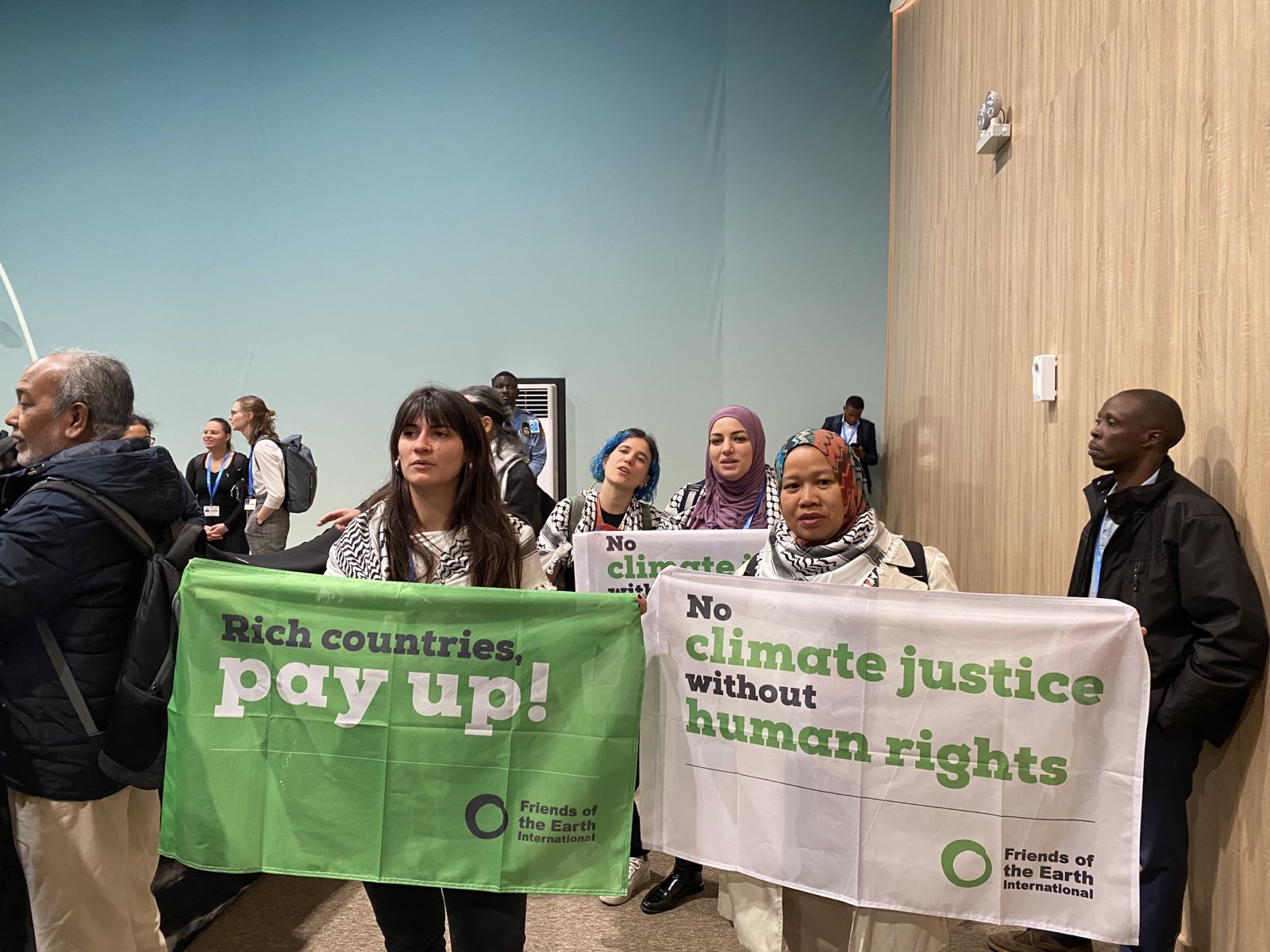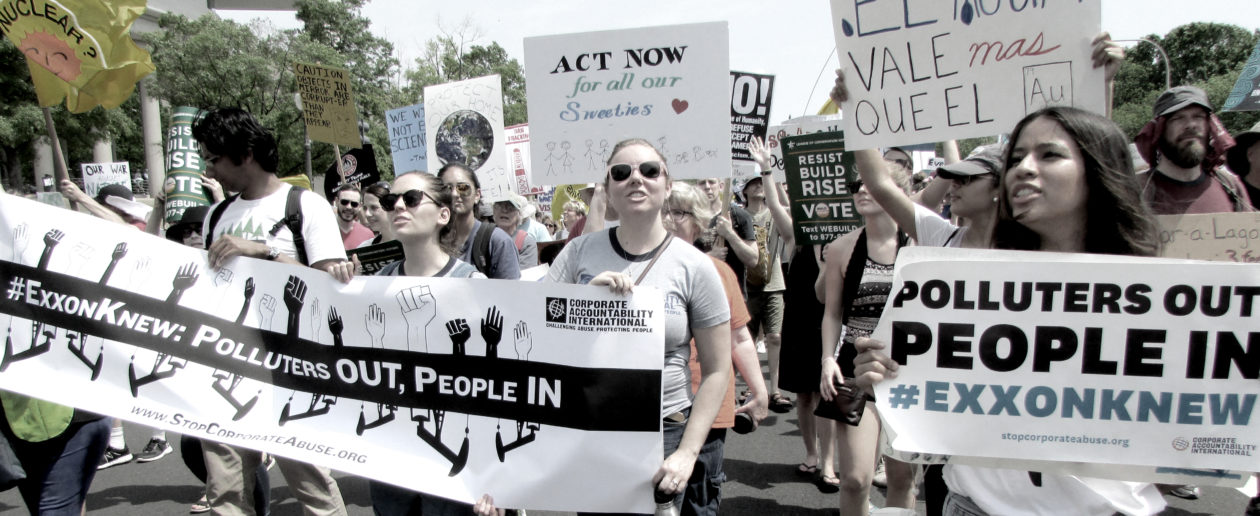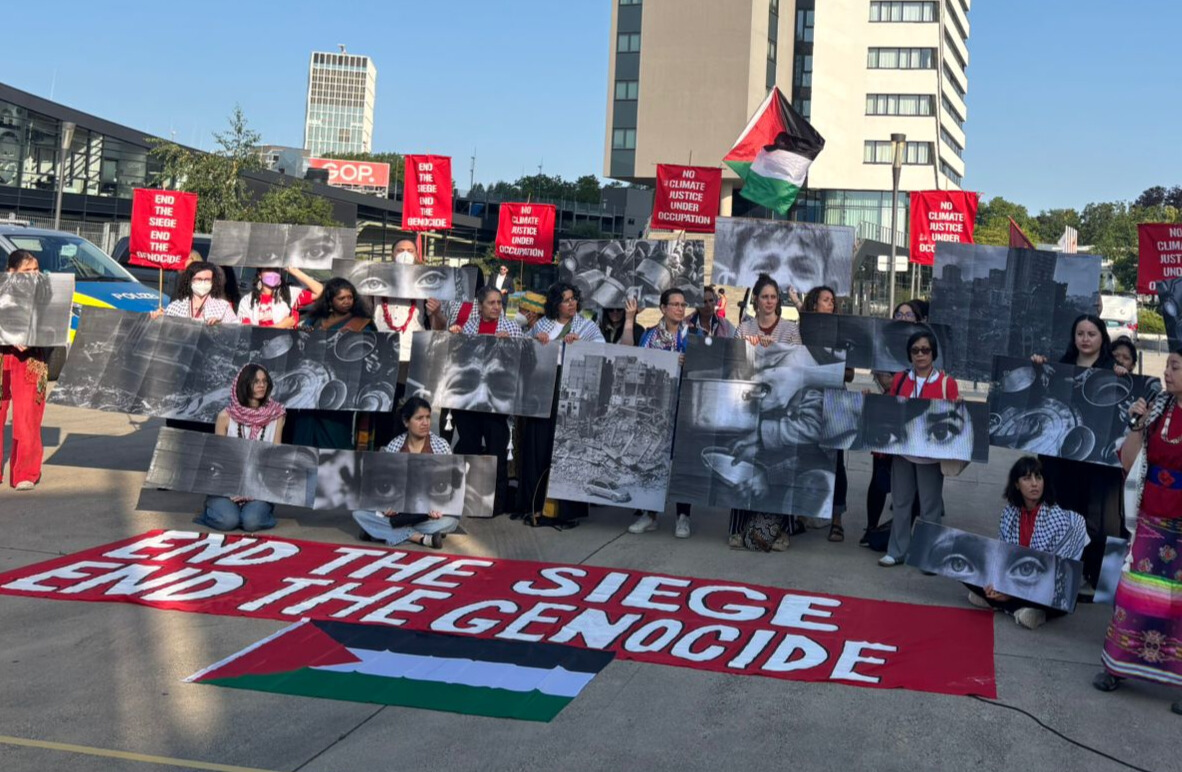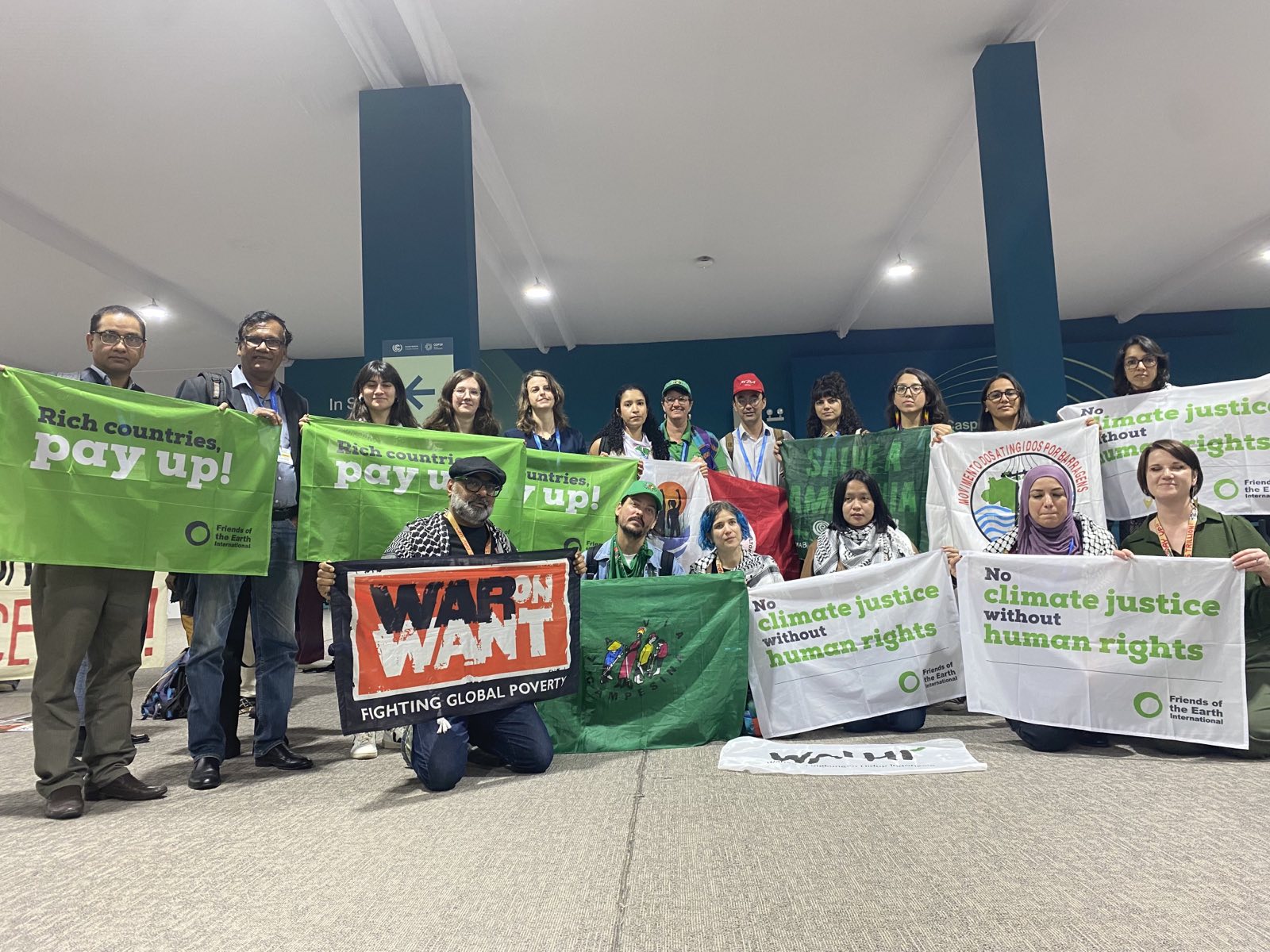Press Release: ‘Without this radical shift in funding priorities, food insecurity will worsen, biodiversity loss will accelerate’, warns NEW PAPER on Financing the Food Systems Transformation
Summary
On the occasion of the 2025 Forum of the Standing Committee on Finance "Accelerating climate action and resilience through financing for sustainable food systems and agriculture", movements from the Global South under the Global Campaign to Demand Climate Justice (DCJ) Food and Agriculture Working Group have released a Discussion Paper on Financing the Food Systems Transformation: Leveraging Climate Finance for Equitable, Humane, and Agroecological Food Systems.
FOR IMMEDIATE RELEASE
7 SEP 2025 – On the occasion of the 2025 Forum of the Standing Committee on Finance “Accelerating climate action and resilience through financing for sustainable food systems and agriculture”, movements from the Global South under the Global Campaign to Demand Climate Justice (DCJ) Food and Agriculture Working Group have released a Discussion Paper on Financing the Food Systems Transformation: Leveraging Climate Finance for Equitable, Humane, and Agroecological Food Systems.
The paper critiques the current global climate financing architecture for agriculture and food systems, emphasizing the urgent need for scaled-up and immediate delivery of climate finance to smallholders, the backbone of global food security. It demands the diversion of harmful subsidies in the sector, further highlighting that only 2.5% of overall public climate financing is allocated for agriculture, with even less—just 1.5%—dedicated to funding sustainable agriculture. Meanwhile, harmful subsidies continue to flow to large-scale industrial agriculture, driving emissions, environmental damage, and poor animal welfare, while deepening inequality between agribusiness and smallholders. To avert this crisis, climate finance directed toward agriculture must immediately prioritize grants and redirect harmful subsidies toward agroecology. The current subsidy architecture is not only flawed but actively damaging. By propping up industrial agriculture, it undermines equity, stalls climate action, and delays the urgent transition required for a sustainable future.
The paper argues that climate finance must enable a just transition away from industrial agriculture and toward equitable, humane, and agroecological food systems. Without this radical shift in funding priorities, food insecurity will intensify, inequality will grow, biodiversity loss will accelerate, and smallholders – already bearing the brunt of climate impacts – will be left without the means to adapt.
DCJ Food and Ag Working Group demands the redirection of harmful subsidies towards agroecology and the scaled-up and immediate delivery of grants-based climate finance from the Global North to the Global South through UNFCCC mechanisms—without reliance on multilateral development banks or the private sector. We advocate for direct access for smallholders, especially women, and urge the diversion of all harmful subsidies from governments toward supporting a just transition to equitable, humane, and agroecological food systems.
Link to the Report: HERE
Quotes:
“Climate finance for agriculture is woefully insufficient, with only a fraction reaching the smallholders. Instead, subsidies continue to fuel intensification – propping up industrial animal agriculture that drives emissions, entrenches poor animal welfare, and deepens inequality. We urgently need to redirect these harmful subsidies toward equitable, humane, and sustainable food systems. The UNFCCC must mirror the Kunming-Montreal Global Biodiversity Framework’s commitment to eliminate at least $500 billion in harmful incentives annually, while scaling up support for positive ones. This is the only way to secure a just and sustainable future for people, animals, and the planet.” – Tricia Croasdell, Global CEO, World Animal Protection.
“We call for the scaled-up and immediate provision of grants-based climate finance for the agriculture sector, and directly into smallholders’ hands. Without this, we are damning the Global South to hunger and the ravaging impacts of the climate crisis.” – Pang Delgra, Asian Peoples’ Movement on Debt and Development
For more information or questions, please feel free to reach the DCJ Food and Agriculture Working Group through its co-leads:
- Elodie Guillon | World Animal Protection | [email protected] | +33678125161
- Pang Delgra | Asian Peoples’ Movement on Debt and Development | [email protected] | +639178310513
- Esthappen | Global Campaign to Demand Climate Justice | [email protected] | +91 98209 18910
